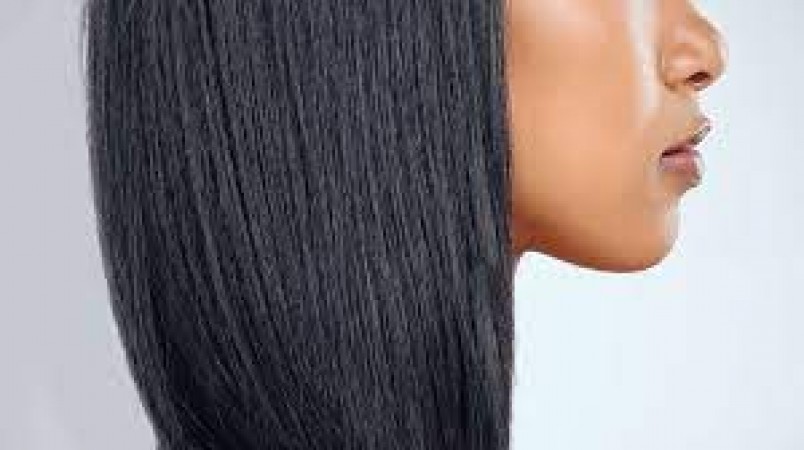
In the pursuit of beauty, it is common for individuals to explore various hair styling techniques like straightening and coloring. However, a recent cautionary note from medical professionals has cast a shadow over these seemingly harmless beauty rituals, revealing potential health risks associated with chemical-laden hair treatments.
Hair dyes, popular for their ability to transform hair color, contain an array of chemicals. These include ammonia and hydrogen peroxide, which, when applied, can penetrate the scalp and make their way into the bloodstream. The potential consequences of these chemical intrusions are raising concerns among medical experts.
Certain hair straightening treatments release formaldehyde during the application process. Formaldehyde is a known carcinogen, and its presence in these products poses a significant health hazard. The convenience of achieving straight hair may come at the expense of long-term health.
The scalp, being a highly vascularized area, has a notable absorption rate. This characteristic makes it susceptible to the absorption of chemicals present in hair products. Understanding this vulnerability is essential in comprehending the potential health risks associated with frequent hair treatments.
The risks escalate with prolonged and frequent exposure to these chemicals. Studies suggest that consistent exposure may increase the likelihood of developing various types of cancer over time. The cumulative effect of seemingly harmless beauty routines is a cause for concern.
Hair salons, where these treatments are routinely performed, may unknowingly become high-risk zones for both customers and salon staff. The constant presence of these chemicals in the air poses health threats that extend beyond the individuals directly undergoing hair treatments.
While focusing on the hair, individuals undergoing treatments may inadvertently inhale chemical fumes. This inhalation poses potential risks to respiratory health, contributing to a range of issues that may not be immediately apparent but can manifest over time.
A safer approach involves exploring natural and organic hair dye alternatives. These options minimize exposure to harmful chemicals, offering a compromise between achieving desired aesthetics and safeguarding one's health.
Opting for hair straightening methods with lower levels of formaldehyde is a proactive step in reducing health risks. Understanding the ingredients in these products and their potential impact is crucial for making informed choices.
Seeking guidance from healthcare professionals is paramount. Consulting with a doctor can provide personalized advice on minimizing health risks while still maintaining a stylish appearance. A doctor's perspective adds a layer of expertise that can guide individuals toward healthier hair practices.
Medical professionals advocate for increased awareness regarding the potential health hazards of popular hair styling practices. Education plays a pivotal role in empowering individuals to make informed decisions about their beauty routines.
Separating fact from fiction is crucial in navigating the controversy surrounding hair styling practices. Addressing common misconceptions and providing accurate information empowers individuals to make choices based on sound knowledge.
Calling for increased regulation and transparency within the beauty industry is essential. Stricter guidelines and clearer labeling can help consumers make informed choices, holding the industry accountable for the products it puts on the market.
Younger individuals may be more susceptible to the health risks associated with hair treatments. Their developing bodies and systems may react differently to the chemicals present in these products, necessitating a more cautious approach.
Pregnant women are urged to exercise caution and consider safer alternatives during this sensitive period. The potential impact of these chemicals on both the mother and the developing fetus underscores the importance of making informed choices.
Encouraging individuals to embrace their natural hair texture and color is a holistic approach to prioritizing overall health. Celebrating diversity and rejecting unrealistic beauty standards can contribute to a positive shift in societal attitudes towards hair aesthetics.
Incorporating routine health check-ups is essential for monitoring any potential long-term effects of chemical exposure. Regular assessments can detect health issues early on, allowing for timely intervention and management.
Establishing support groups and platforms for individuals to share experiences, information, and support related to healthy hair practices fosters a sense of community. Collective awareness can drive positive change and encourage safer beauty practices.
Social media platforms play a significant role in shaping beauty standards. Promoting a more realistic and health-centric beauty standard through these platforms can influence public perception and encourage responsible beauty practices.
While beauty trends come and go, it's crucial to prioritize health over aesthetic pursuits. By staying informed, considering safer alternatives, and making conscious choices, individuals can enjoy stylish looks without compromising their well-being. The symbiosis of beauty and health is achievable with a mindful and informed approach.
Truck Drivers Protests End After Govt Assurances on New Hit-and-Run Law
CBI Closes IPL Match-Fixing Cases Due to Lack of Evidence
India Dials Saudi Arabia as Russian Oil Imports Dip to 11-Month Low in December